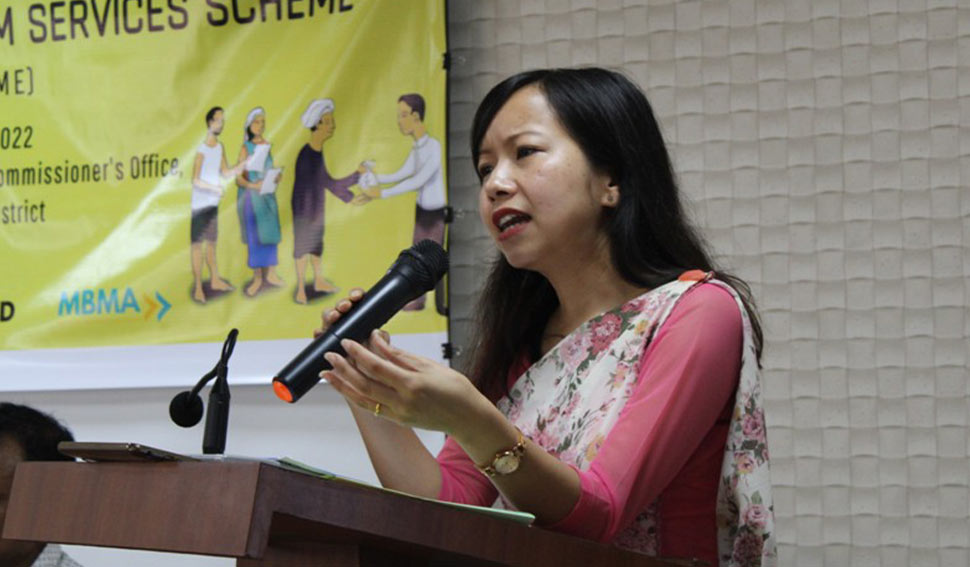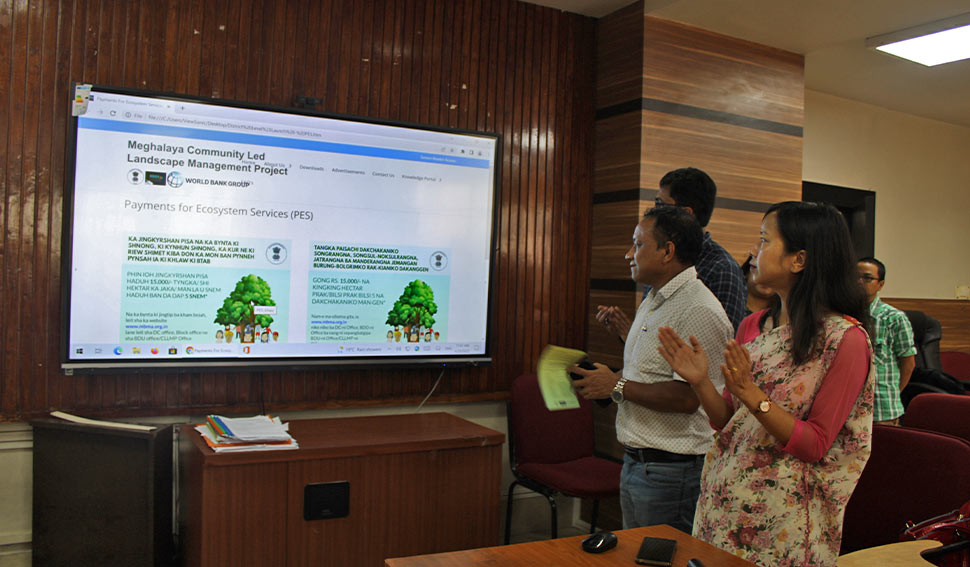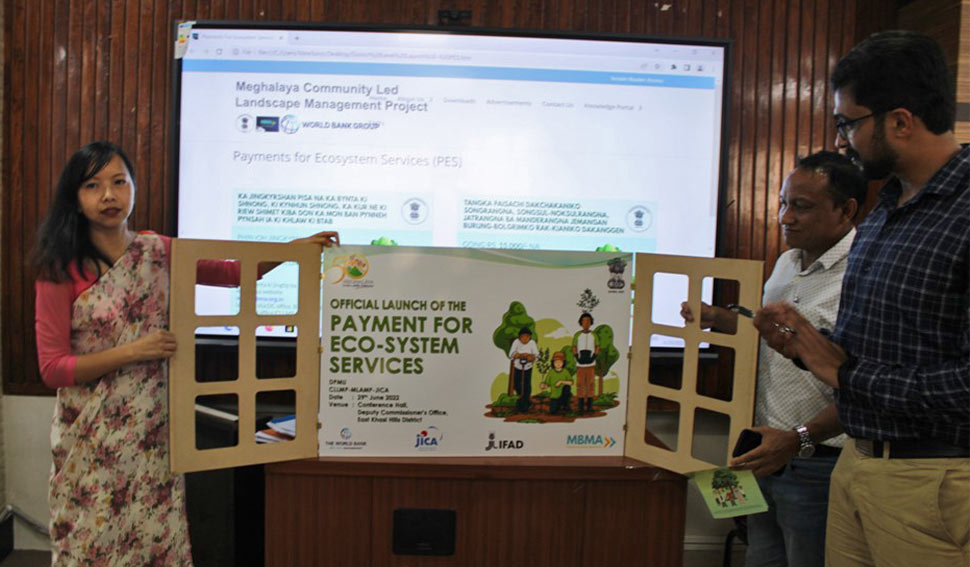PES Scheme launched in East Khasi Hills
East Khasi Hills Deputy Commissioner, Isawanda Laloo on Wednesday launched the Payment for Ecosystem Services (PES) Scheme at the Conference Hall, Deputy Commissioner’s Office, East Khasi Hills District, Shillong. The programme was organised by the Office of the Deputy Commissioner in collaboration with the Meghalaya Basin Management Agency (MBMA) and District Project Management Unit (DPMU), East Khasi Hills.
It may be mentioned that the PES scheme in the state was launched by the Chief Minister, Conrad K Sangma on June 13, 2022.
This scheme provides benefits through financial support of Rs. 8000 per hectare per year for five years. In addition, an additional reward amount of Rs. 5000 per hectare per year will also be given to those natural forests already registered as community reserve with the Forest Department and an amount of Rs 2000 per hectare per year will be given to those with a very dense forests or traditionally recognized as sacred grove or has a living root bridge or located in eco-sensitive zones around protected areas like national parks, wildlife sanctuary or wildlife corridors. If the forests are not yet registered, the applicant may apply for registration with the forest department and a copy of receipt may be submitted while applying for the PES scheme.
Laloo in her address highlighted the objectives of PES, stating that the scheme, being implemented under Community Led Landscape Management Project (CLLMP), is aimed at providing financial support to the villages, communities, clans and individuals willing to conserve existing natural forests for a period of 30 years in order to counter the losses due to conservation measures and sought the cooperation of all concerned for successful implementation of the scheme in the district.

Stating that Meghalaya being a 6th schedule state, major parts of forest cover belong to the communities and emphasise that through this scheme the villages and communities can be strengthened and empowered in order to maintain and conserve their forests.



Leave a Reply